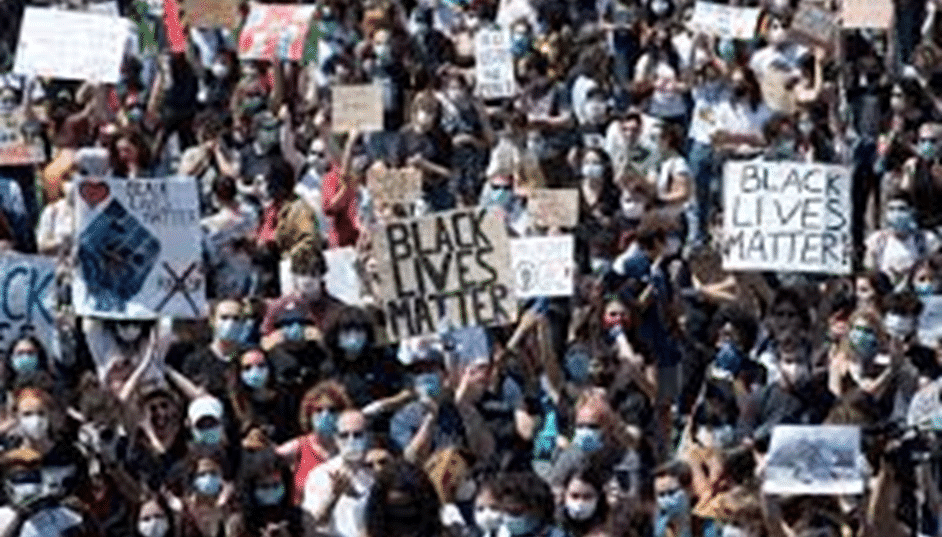POSTS:
Social & Political Engagement

No Justice, No Peace (or Human Flourishing)
In response to Thanissaro Bhikhhu's claim that the end of suffering for each individual is more important than justice, Mike Slott argues that reducing suffering and the achievement of social justice are equally necessary and complementary processes.

Collective Trauma, Revenge, and Cycles of Violence: A Buddhist Approach to the Israeli-Palestinian Situation
Karsten Struhl addresses the intersection of the collective traumas of two peoples and considers how a Buddhist perspective can help us better understand the cycles of violence and how we might respond to them.

Mindful ethics, capitalism and sustainability: invest in life, not death
John Danvers argues that the current neoliberal capitalist system is unsustainable and calls for a reformed capitalism more focused on caring for each other and the earth.

Degrowth and radically engaged Buddhism
Mario Sassi discusses the affinities between a radically engaged Buddhism and degrowth, an alternative economic and political philosophy.

The Elephant in the Dharma Hall
John Peacock argues that for too many, Buddhist practice is a retreat into a quietism that ignores the pressing social and political realities of our time. In his view, politics must find its way into the dharma hall.

Socially Engaged and Radically Engaged Buddhism
Karsten Struhl argues that Buddhists need to focus not just on the problem of existential-psychological suffering but challenge and transform social institutions. which cause various forms of harm and suffering.

Engaged Buddhism: vision, hopes, and cautions
Seth Zuihō Segall offers a naturalistic Buddhist vision of flourishing which recognizes both our capacity to make positive social changes and the need to be pragmatic in our approach.

Statement on Israel/Palestine
As individuals who embrace a secular or naturalistic approach to the dharma, one that is based on the goal of reducing suffering and facilitating the flourishing of all beings in this world, we feel a responsibility to speak out about the horrific events in Israel and Palestine.

‘Right livelihood’ at $17.3 million a year?
In response to an interview between Jack Kornfield and a Ford Motor executive, Mike Slott and Katya de Kadt argue that the Buddhist notion of right livelihood must take into account the structural role of corporations in causing harm.

An exciting new global movement – the Global Compassion Coalition
Colette Descent discusses the Global Compassion Project, a new organization initiated by Rick Hanson and others, to inspire individuals, organizations, and governments to address the causes of suffering and to build communities of care and belonging.

The value of meditational awareness and Buddhist ethics for progressive groups
Katya de Kadt explains how meditational awareness and an ethics based in the values and wisdom of Buddhism can help activists avoid burnout and play a productive role in the struggle for social change.

Towards a flourishing-based ethics
Seth Zuiho Segall brings together the virtue ethics systems of Aristotle, the Buddha, and Confucius with the pragmatists' emphasis on provisional truths and democracy to offer a new flourishing-based ethics.

The path of the bodhisattva or ‘making the road’ through solidarity?
Mike Slott offers an alternative model to the path of the Bodhisattva, one based on the solidarity of practitioners 'co-creating' the transformative changes that we seek.

Anger, conflict and compassion
Given the anger that many people feel in relation to the tragic events in Ukraine and to violent conflicts in other parts of the world, John Danvers reflects on this powerful emotion and how we might deal with it in a skillful way so that anger is transformed into compassionate action.

What is engaged Buddhism missing? The Buddha on poverty and plutocracy
In a recent dharma talk, David Loy emphasized the economic roots of the climate crisis and calls for structural, not just individual, change. According to David, 'the ecological crisis is deeply implicated in the basic structure of our economic system. . . In other words, the eco-crisis is also an economic—especially a class—crisis.'
EXPLORE BY SECTION
SEARCH THE SITE
RECENT POSTS







